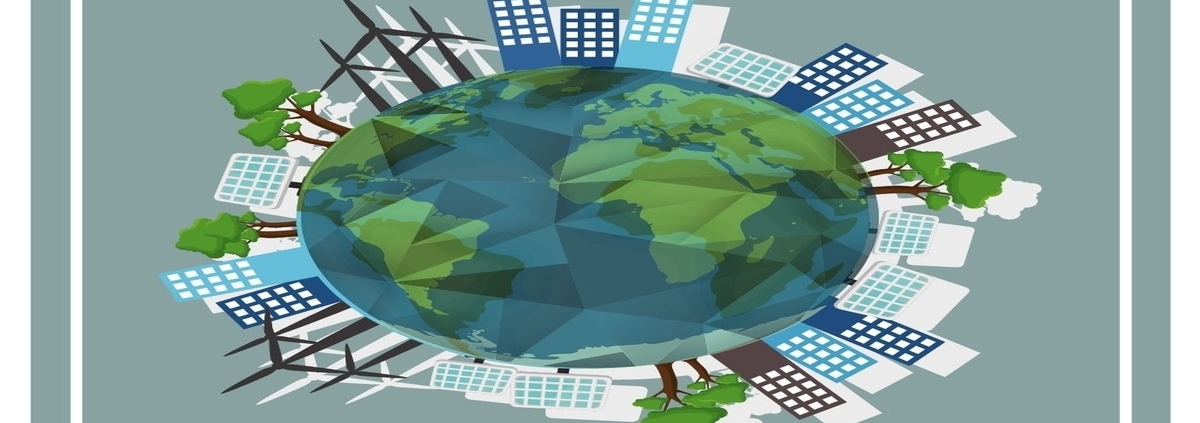In the early 2000s, breakneck urbanization and population explosion in the UAE rang the alarm bells. Needless to say, in 2006, the World Wildlife Fund (WWF) named the UAE the nation with the largest ecological footprint per capita(1). The leaders perceived this as a clarion call for redressal and appropriate measures were taken.
Fast forward to 2021, and the UAE has made incredible progress in reducing its carbon footprint. I was particularly happy to see the nation pledge net-zero emissions by 2050. While I believe that, for demonstrable impact, emissions need to be reduced at an industrial scale, there is also an onus on us individuals to complement governmental efforts. Though it may not seem much, individual actions can have a profound impact. Experts stress that change starts with individual consumers(2) making better choices.
The start of a new year is a great chance to make changes in our lives to reduce our personal carbon footprint. Here are ways we can take more initiative and be more environmentally responsible in 2022.
Making sustainable clothing choices
Fast fashion has increasingly come under scrutiny in recent years due to its impact on the environment. Each year, the world as a whole consumes and disposes of more than 1 million tonnes(3) of clothing. But this isn’t the worst part — less than half of that is reused, and a measly 14% is recycled.
And since clothing is a basic necessity for all humans, a slight pivot can lead to macro changes. Among all the options we have to be environmentally responsible, making sustainable clothing purchases is one of the easiest. However, this action works differently for different individuals. For some, it could mean shopping for second-hand clothing when feasible. For others, it means investing in high-quality clothing that can be worn and re-worn for years, before it is disposed of. Forward-thinking designers are working to popularize upcycling clothing(4) and blazing a new trail for other designers.
Swap single-use plastics for reusable products
Single-use plastics, used in shopping bags and straws, have been disappearing from commercial spaces in recent years. In 2020, for instance, airports in Dubai placed a ban(5) on the use of such items. I have since followed this at home, hoping to lead by example.
Firstly, it’s important to recognize commonly used single-use plastics in your home. Plastic water bottles, plastic fruit wrappers, straws, and even toothbrushes are among the most common types of plastic products used daily but seldom acknowledged. Thankfully, these are also some of the easiest items to swap for eco-friendly alternatives.
Secondly, one could purchase fruit and other products from markets or stores that utilize eco-friendly packaging instead of single-use plastics. Environmentally responsible companies have launched bamboo toothbrushes, in a bid to raise awareness and offer viable alternatives to people. Using reusable water bottles and plastic straws at home, too, can do the trick.
Consider going meat-free once a week
Many people do not realize that producing enough meat for a single cheeseburger results in more emissions(6) of carbon dioxide than a one-kilometre drive in a fossil fuel-powered car. However, since meat can be a staple in our diet, we cannot consider quitting eating it altogether. According to multiple studies, going meat-free one day a week could lead to a quantifiable decline in carbon emissions if pursued at scale.
It is understandably tough to imagine how individual choices could make a difference. But, unbeknownst to many, the reality is that every bit counts in the fight against climate change. From experience, I can say that taking initiative and making small environment-friendly changes become habits that you will come to enjoy in the due course. And the new year, with its scope for resolutions, is an opportune time to begin our personal, sustainable journeys.
- https://wwfeu.awsassets.panda.org/downloads/living_planet_report.pdf
- https://www.vox.com/the-goods/2018/10/12/17967738/climate-change-consumer-choices-green-renewable-energy
- https://thesustainabilist.ae/the-real-price-of-fashion/
- https://www.thenationalnews.com/uae/2021/07/05/upcycling-is-the-answer-to-polluting-fast-fashion-says-dubai-designer/
- https://www.euronews.com/next/2020/01/24/dubai-acts-to-stem-the-tide-of-single-use-plastic



